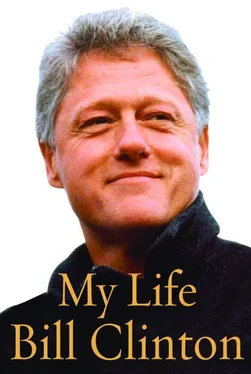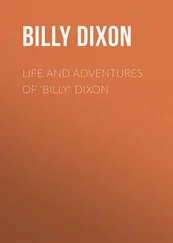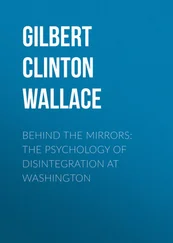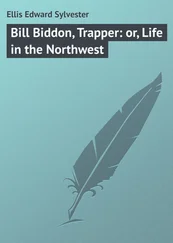In 1994, as we headed for the celebration of the fiftieth anniversary of D-day, several newspapers published a story on my father’s war record, with a snapshot of him in uniform. Shortly afterward, I received a letter from Umberto Baron of Netcong, New Jersey, recounting his own experiences during the war and after. He said that he was a young boy in Italy when the Americans arrived, and that he loved to go to their camp, where one soldier in particular befriended him, giving him candy and showing him how engines worked and how to repair them. He knew him only as Bill. After the war, Baron came to the United States, and, inspired by what he had learned from the soldier who called him “Little GI Joe,” he opened his own garage and started a family. He told me he had lived the American dream, with a thriving business and three children. He said he owed so much of his success in life to that young soldier, but hadn’t had the opportunity to say good-bye then, and had often wondered what had happened to him. Then, he said, “On Memorial Day of this year, I was thumbing through a copy of the New York Daily News with my morning coffee when suddenly I felt as if I was struck by lightning. There in the lower left-hand corner of the paper was a photo of Bill. I felt chills to learn that Bill was none other than the father of the President of the United States.”
In 1996, the children of one of my father’s sisters came for the first time to our annual family Christmas party at the White House and brought me a gift: the condolence letter my aunt had received from her congressman, the great Sam Rayburn, after my father died. It’s just a short form letter and appears to have been signed with the autopen of the day, but I hugged that letter with all the glee of a six-year-old boy getting his first train set from Santa Claus. I hung it in my private office on the second floor of the White House, and looked at it every night.
Shortly after I left the White House, I was boarding the USAir shuttle in Washington for New York when an airline employee stopped me to say that his stepfather had just told him he had served in the war with my father and had liked him very much. I asked for the old vet’s phone number and address, and the man said he didn’t have it but would get it to me. I’m still waiting, hoping there will be one more human connection to my father.
At the end of my presidency, I picked a few special places to say goodbye and thanks to the American people. One of them was Chicago, where Hillary was born; where I all but clinched the Democratic nomination on St. Patrick’s Day 1992; where many of my most ardent supporters live and many of my most important domestic initiatives in crime, welfare, and education were proved effective; and, of course, where my parents went to live after the war. I used to joke with Hillary that if my father hadn’t lost his life on that rainy Missouri highway, I would have grown up a few miles from her and we probably never would have met. My last event was in the Palmer House Hotel, scene of the only photo I have of my parents together, taken just before Mother came back to Hope in 1946. After the speech and the good-byes, I went into a small room where I met a woman, Mary Etta Rees, and her two daughters. She told me she had grown up and gone to high school with my mother, then had gone north to Indiana to work in a war industry, married, stayed, and raised her children. Then she gave me another precious gift: the letter my twenty-three-year-old mother had written on her birthday to her friend, three weeks after my father’s death, more than fifty-four years earlier. It was vintage Mother. In her beautiful hand, she wrote of her heartbreak and her determination to carry on: “It seemed almost unbelievable at the time but you see I am six months pregnant and the thought of our baby keeps me going and really gives me the whole world before me.”
My mother left me the wedding ring she gave my father, a few moving stories, and the sure knowledge that she was loving me for him too.
My father left me with the feeling that I had to live for two people, and that if I did it well enough, somehow I could make up for the life he should have had. And his memory infused me, at a younger age than most, with a sense of my own mortality. The knowledge that I, too, could die young drove me both to try to drain the most out of every moment of life and to get on with the next big challenge. Even when I wasn’t sure where I was going, I was always in a hurry.
Iwas born on my grandfather’s birthday, a couple of weeks early, weighing in at a respectable six pounds eight ounces, on a twenty-one-inch frame. Mother and I came home to her parents’ house on Hervey Street in Hope, where I would spend the next four years. That old house seemed massive and mysterious to me then and still holds deep memories today. The people of Hope raised the funds to restore it and fill it with old pictures, memorabilia, and period furniture. They call it the Clinton Birthplace. It certainly is the place I associate with awakening to life—to the smells of country food; to buttermilk churns, ice-cream makers, washboards, and clotheslines; to my “Dick and Jane” readers, my first toys, including a simple length of chain I prized above them all; to strange voices talking over our “party line” telephone; to my first friends, and the work my grandparents did. After a year or so, my mother decided she needed to go back to New Orleans to Charity Hospital, where she had done part of her nursing training, to learn to be a nurse anesthetist. In the old days, doctors had administered their own anesthetics, so there was a demand for this relatively new work, which would bring more prestige to her and more money for us. But it must have been hard on her, leaving me. On the other hand, New Orleans was an amazing place after the war, full of young people, Dixieland music, and over-the-top haunts like the Club My-Oh-My, where men in drag danced and sang as lovely ladies. I guess it wasn’t a bad place for a beautiful young widow to move beyond her loss. I got to visit Mother twice when my grandmother took me on the train to New Orleans. I was only three, but I remember two things clearly. First, we stayed just across Canal Street from the French Quarter in the Jung Hotel, on one of the higher floors. It was the first building more than two stories high I had ever been in, in the first real city I had ever seen. I can remember the awe I felt looking out over all the city lights at night. I don’t recall what Mother and I did in New Orleans, but I’ll never forget what happened one of the times I got on the train to leave. As we pulled away from the station, Mother knelt by the side of the railroad tracks and cried as she waved good-bye. I can see her there still, crying on her knees, as if it were yesterday.
For more than fifty years, from that first trip, New Orleans has always had a special fascination for me. I love its music, food, people, and spirit. When I was fifteen, my family took a vacation to New Orleans and the Gulf Coast, and I got to hear Al Hirt, the great trumpeter, in his own club. At first they wouldn’t let me in because I was underage. As Mother and I were about to walk away, the doorman told us that Hirt was sitting in his car reading just around the corner, and that only he could let me in. I found him—in his Bentley no less—tapped on the window, and made my case. He got out, took Mother and me into the club, and put us at a table near the front. He and his group played a great set—it was my first live jazz experience. Al Hirt died while I was President. I wrote his wife and told her the story, expressing my gratitude for a big man’s long-ago kindness to a boy.
When I was in high school, I played the tenor saxophone solo on a piece about New Orleans called Crescent City Suite. I always thought I did a better job on it because I played it with memories of my first sight of the city. When I was twenty-one, I won a Rhodes scholarship in New Orleans. I think I did well in the interview in part because I felt at home there. When I was a young law professor, Hillary and I had a couple of great trips to New Orleans for conventions, staying at a quaint little hotel in the French Quarter, the Cornstalk. When I was governor of Arkansas, we played in the Sugar Bowl there, losing to Alabama in one of the legendary Bear Bryant’s last great victories. At least he was born and grew up in Arkansas! When I ran for President, the people of New Orleans twice gave me overwhelming victory margins, assuring Louisiana’s electoral votes for our side.
Читать дальше












